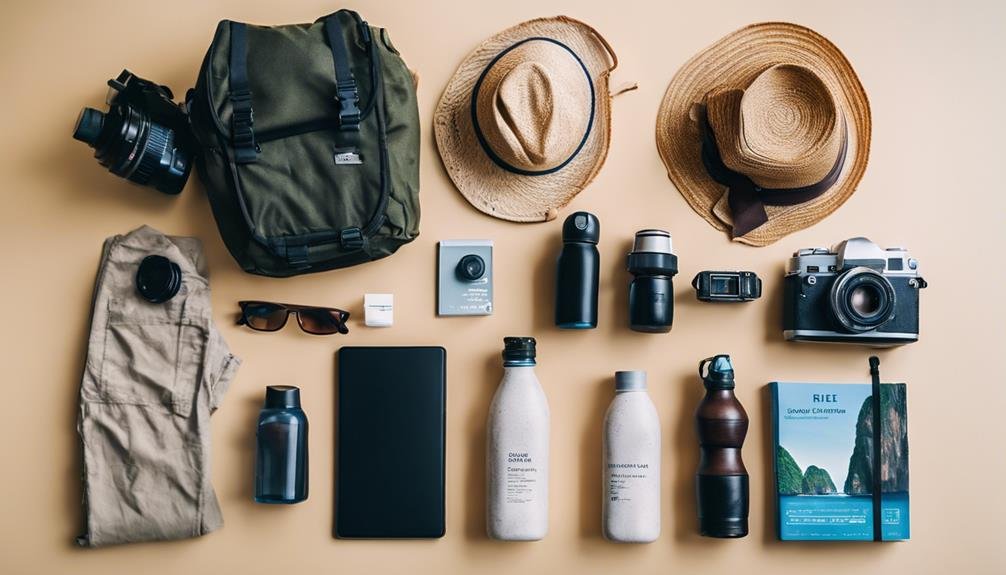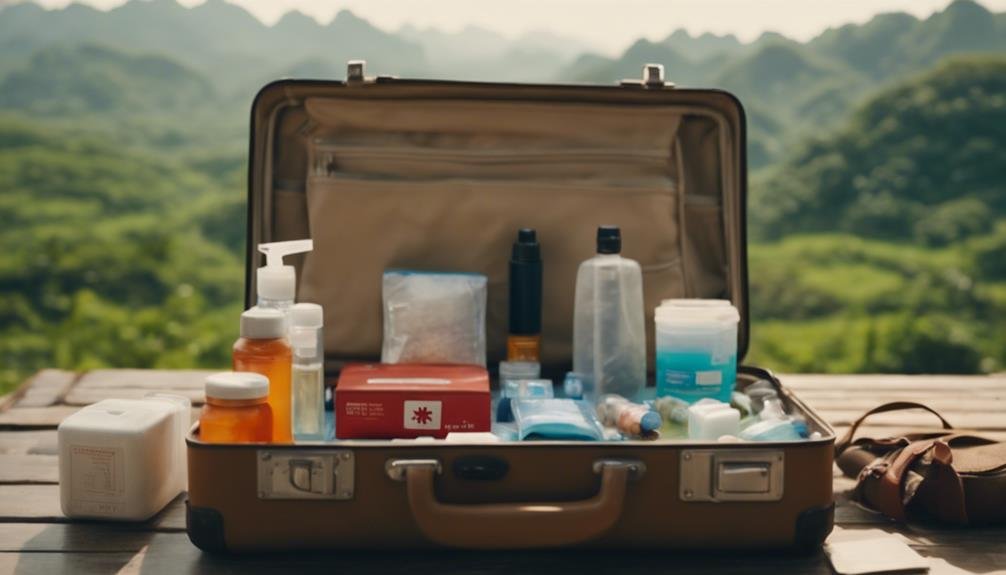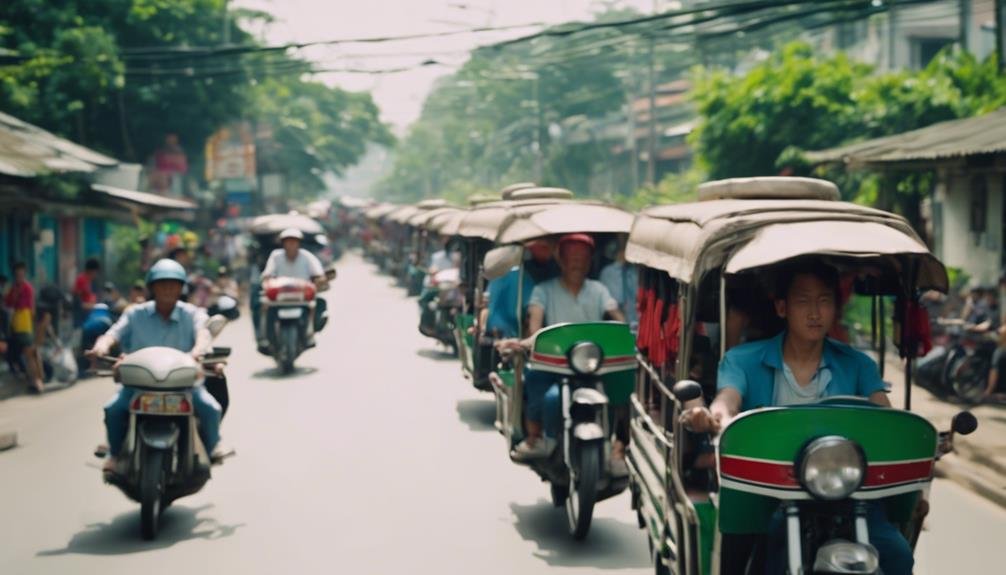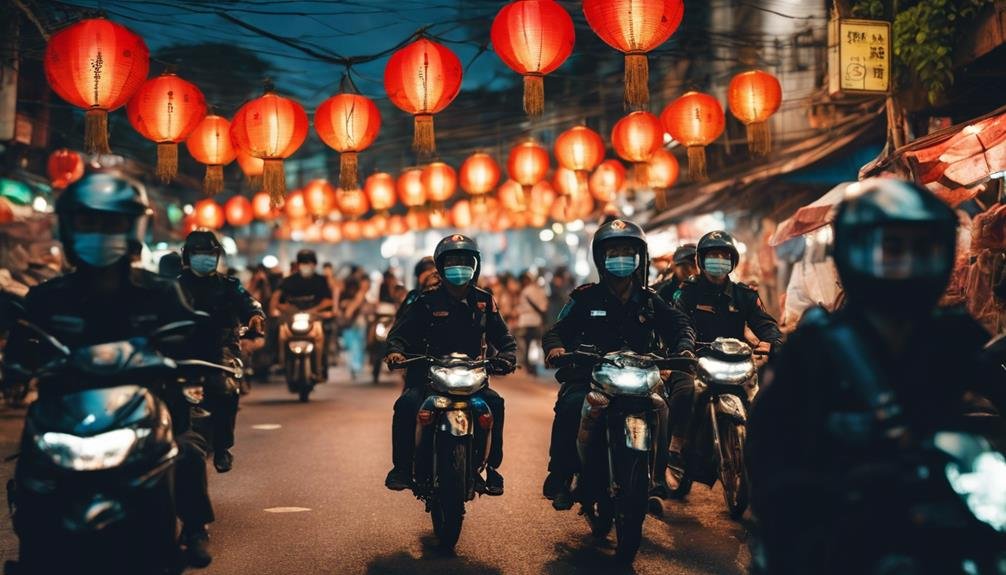When planning your trip to Vietnam, key factors must be considered to guarantee a hassle-free journey. Every detail matters, from essential packing items like lightweight clothing and sun protection to understanding visa requirements and health precautions.
You’ll also want to be savvy about booking accommodations, selecting transportation options, and following safety measures. But there’s more to uncover that could make or break your experience.
Are you curious about how to seamlessly navigate these aspects? Let’s explore the essential tips to make your Vietnam adventure enjoyable and stress-free.
Key Takeaways
- Pack lightweight, breathable clothing and a rain jacket for Vietnam’s heat, humidity, and sudden downpours.
- Use insect repellent and practice good food hygiene to avoid tropical illnesses and traveler’s diarrhea.
- Secure necessary visas through an e-visa, embassy application, or visa upon arrival for smooth entry.
- Consider accommodation types ranging from budget hostels to luxury hotels and homestays for various experiences and budgets.
- Utilize Grab for city transport and rent motorbikes or bicycles for independent exploration while staying cautious of safety.
Packing Essentials

When packing for Vietnam, ensure you have lightweight, breathable clothing to handle the heat and humidity. Vietnam’s climate can be intense, so choosing fabrics that keep you cool and comfortable is important.
Lightweight clothing is your best friend here, allowing your skin to breathe and sweat to evaporate quickly. Don’t overlook the rain jacket or poncho, especially when traveling during the rainy season. Sudden downpours are common, and staying dry can make a huge difference in your comfort.
Sun protection is another essential item: pack sunscreen, sunglasses, and a hat to shield yourself from the strong tropical sun.
Insect repellent is necessary to guard against mosquitoes and other bugs. Vietnam’s lush landscapes are beautiful but can also be breeding grounds for insects. A good insect repellent will help keep those pesky bites at bay.
Comfortable walking shoes are another packing essential. Sturdy shoes will support your feet across various terrains, whether you’re exploring bustling cities or trekking through rural areas. Follow these Vietnam travel tips to ensure you’re well-prepared, comfortable, and ready to enjoy your adventure.
Navigating Visas
Obtaining a visa for Vietnam is an essential step you can’t overlook before your trip. Most visitors need a visa, typically valid for 30 days from arrival. To make your entry hassle-free, it’s important to understand the visa requirements and apply for a visa beforehand.
Depending on your nationality and travel plans, you have several options. One of the most convenient is the e-visa, which is available to citizens from countries like the US and UK. You can apply online through the official Vietnamese government website.
This type of visa is usually single-entry and allows you to stay for up to 30 days. Those who prefer a more traditional route can also apply for a visa at a Vietnamese embassy or consulate in their home country.
If you’re short on time, consider the visa-upon-arrival option. However, you’ll need to obtain an approval letter before you depart. Presenting your visa upon arrival ensures a smooth entry into Vietnam.
Whether you choose an e-visa, embassy application, or visa upon arrival, being prepared will help you start your adventure smoothly.
Health Preparation

Preparing for potential health risks before traveling to Vietnam is important to guarantee a safe and enjoyable trip. Tropical illnesses are prevalent in the region, so vaccination is highly recommended.
Consult your doctor at least a month before your departure to ensure you have all necessary vaccinations and medications. Consider taking anti-malarial medications, especially if you plan to visit rural areas where the risk of malaria is higher.
Mosquito repellent is essential to guard against mosquito-borne diseases like dengue fever and Zika virus. Apply it regularly, particularly during dawn and dusk, when mosquitoes are most active.
Traveler illnesses, such as food poisoning, can be common. Practice good food hygiene by eating well-cooked meals and avoiding street food that may not meet health standards. Always drink bottled or purified water to stay hydrated and reduce the risk of waterborne illnesses.
Booking Accommodations
After ensuring your health preparations are in order, it’s time to focus on booking accommodations in Vietnam. The range of accommodation choices is diverse, catering to all budgets and preferences.
If you’re on a tight budget, consider staying in budget hostels, which can start as low as $5 per night. For a more luxurious experience, you can opt for luxury hotels, which offer high-quality amenities and cost $60 or more, depending on the location and season.
Booking through social media platforms can sometimes yield discounts and personalized services. For a more immersive experience, consider homestays. These will give you a unique insight into Vietnamese daily life, allowing you to connect with locals and experience their culture firsthand.
When deciding between hotel and hostel options, it is important to compare their features and prices to find what best suits your needs. Each choice offers different experiences and levels of comfort.
| Accommodation Type | Price Range | Key Features |
|---|---|---|
| Budget Hostels | $5 – $20 per night | Affordable, social atmosphere |
| Mid-range Hotels | $20 – $60 per night | Moderate comfort, good amenities |
| Luxury Hotels | $60+ per night | High-quality amenities, premium services |
| Homestays | $10 – $50 per night | Authentic experience, local interaction |
| Boutique Hotels | $40 – $80 per night | Unique decor, personalized service |
Transportation Tips

Getting around Vietnam’s bustling cities and scenic countryside is easier, with various transportation options to suit every traveler’s needs. Grab is a popular and affordable choice in urban areas, and you can easily book rides through its app.
For longer distances, consider flying; domestic flights efficiently connect major cities like Hanoi, Ho Chi Minh City, and Da Nang. If you’re traveling on a budget, local buses and trains offer a cost-effective way to explore different regions.
These modes of transport provide an authentic experience but may require some patience due to varying schedules and comfort levels.
For those who prefer more independence, renting motorbikes or bicycles is a fantastic way to see the sights at your own pace. However, traveling in Vietnam can be challenging due to chaotic traffic and different road rules. If you’re not confident, hiring a local driver can make your journey smoother and safer.
This option lets you relax and enjoy the scenery without worrying about road conditions or directions. Whether you zip around on a motorbike or relax in the backseat, Vietnam’s transportation options cater to every need and preference.
Dining Guide
Exploring Vietnam’s culinary landscape offers sidewalk dining experiences, street food adventures, and bustling market visits. Vietnamese cuisine is nothing short of a flavorful journey, with dishes like pho and banh mi taking center stage.
You’ll find food stalls and markets in cities like Hanoi and Ho Chi Minh City, where you can sample a variety of regional specialties. To make the most of your dining experience, keep these tips in mind:
- Embrace street food: Don’t miss out on fresh spring rolls or crispy banh xeo pancakes. Street food is affordable and delicious and gives you a true taste of local dining.
- Learn dining etiquette: Use chopsticks, share dishes family-style, and always show appreciation by saying ‘cam on’ (thank you) to your hosts.
- Savor the flavors: Vietnamese cuisine is known for using fresh herbs and aromatic spices. Look for dishes that beautifully balance these flavors.
Whether sitting on a tiny plastic stool on a bustling sidewalk or exploring the vibrant food stalls, Vietnam’s culinary delights will surely leave you wanting more. Immerse yourself and enjoy the rich tapestry of tastes and aromas that define this incredible cuisine.
Safety Precautions

Staying vigilant and informed can greatly enhance your safety while traveling in Vietnam. The country is generally safe for tourists, but taking certain precautions can help guarantee a smooth trip.
Petty crimes like pickpocketing are common in crowded places, so keep an eye on your belongings. Use anti-theft bags and avoid displaying valuables openly.
Scams targeting tourists can occur, especially in busy tourist areas. Always agree on prices before using services like taxis or purchasing goods.
Be cautious of overly friendly strangers offering unsolicited services or deals that seem too good to be true. Although violent crimes are rare, staying alert and avoiding isolated areas is still wise, particularly at night.
Theft can happen, so secure your belongings in hotel safes when possible. When exploring, only carry what you need and leave important documents like passports in a secure place. Regularly check government advisories for updated safety tips and potential travel warnings.
Conclusion
In summary, your adventure in Vietnam will be more enjoyable when you are well-prepared. Pack smartly with lightweight clothing and sun protection, secure your visa ahead of time, and stay healthy with necessary vaccinations.
Book accommodations that suit your needs choose the best transportation options and explore the local cuisine safely. Following these tips guarantees a smooth and unforgettable journey through this beautiful and vibrant country. Safe travels!
Explore More Articles:
Items Not to Forget When Traveling: Essentials for Every Traveler
5 Travel Trailer Seasonal Camper Tips My Blissful Experience
Essentials for 3 Day Backpacking Trip: Must-Have Gear Checklist

